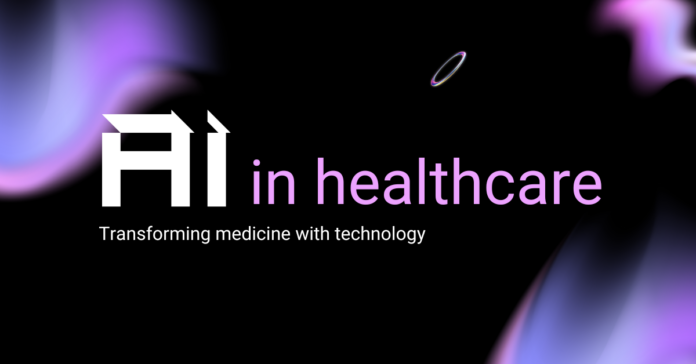Introduction
Artificial Intelligence (AI) is transforming the healthcare industry by improving diagnostic accuracy, personalizing treatment plans, enhancing operational efficiency, and accelerating drug discovery. With AI-powered tools, healthcare professionals can offer better patient care while reducing costs and errors. As AI continues to evolve, its role in medicine is becoming increasingly significant. This article explores how AI is revolutionizing healthcare and medicine.
For more technology and healthcare insights, visit ArticleTable.
What Is Artificial Intelligence in Healthcare?
AI in healthcare refers to the use of machine learning algorithms, natural language processing, and robotics to analyze medical data and improve patient outcomes. AI systems can process vast amounts of data, recognize patterns, and make informed decisions faster than humans.
Types of AI in Healthcare
- Machine Learning (ML) – Algorithms that analyze large datasets to predict outcomes.
- Natural Language Processing (NLP) – AI that understands and processes human language.
- Robotics – AI-driven robots assisting in surgeries and patient care.
AI in Medical Diagnostics
AI-powered diagnostic tools are enhancing the accuracy and speed of disease detection.
How AI Improves Disease Detection
- AI systems analyze medical images to detect anomalies.
- AI-driven platforms assist radiologists in diagnosing conditions like cancer.
- Machine learning models help predict diseases based on patient history.
Examples of AI-Powered Diagnostic Tools
- Google’s DeepMind – AI that detects eye diseases from retinal scans.
- IBM Watson Health – AI system assisting oncologists in diagnosing cancer.
- Aidoc – AI software that analyzes medical images for abnormalities.
AI in Personalized Medicine
AI enables tailored treatment plans based on patient genetics, lifestyle, and medical history.
Predictive Analytics and Genetic Profiling
- AI assesses genetic information to determine disease risks.
- AI helps doctors create customized medication plans.
AI in Drug Development and Clinical Trials
- AI predicts drug effectiveness before human trials.
- AI streamlines clinical trials by identifying ideal candidates.
AI in Surgery and Robotics
AI is enhancing surgical precision and reducing risks through robotic-assisted procedures.
Robotic-Assisted Surgeries
- Da Vinci Surgical System – AI-powered robot assisting surgeons in minimally invasive procedures.
- AI enhances precision, reducing surgery time and recovery periods.
Future of AI-Powered Autonomous Surgeries
- AI-powered robots performing complex procedures with minimal human supervision.
- AI-driven decision-making improving surgical outcomes.
AI in Drug Discovery and Development
AI accelerates drug discovery by analyzing vast medical datasets.
How AI Accelerates Drug Discovery
- AI identifies potential drug candidates in a fraction of the usual time.
- AI predicts how drugs interact with the human body.
AI-Powered Drug Repurposing
- AI analyzes existing drugs to discover new treatments.
- AI speeds up vaccine and medicine development, as seen in COVID-19 research.
AI in Telemedicine and Remote Patient Care
AI enhances telehealth services by enabling remote consultations and patient monitoring.
AI-Powered Chatbots and Virtual Health Assistants
- AI chatbots provide instant medical advice and appointment scheduling.
- Virtual health assistants analyze symptoms and suggest treatments.
Remote Monitoring and AI-Driven Wearables
- AI wearables track vital signs and alert doctors to abnormalities.
- AI-powered systems help manage chronic diseases remotely.
AI in Hospital Management and Administration
AI streamlines hospital operations and improves efficiency.
AI in Scheduling and Patient Management
- AI optimizes patient scheduling to reduce wait times.
- AI automates medical billing and administrative tasks.
Reducing Medical Errors
- AI ensures accurate data entry and prescription management.
- AI alerts doctors to potential drug interactions.
Ethical and Privacy Concerns in AI Healthcare
While AI has many benefits, ethical and privacy concerns must be addressed.
Challenges in Data Privacy and Security
- AI systems require access to vast amounts of patient data.
- Ensuring data security and compliance with regulations is crucial.
Ethical Concerns of AI Decision-Making
- AI’s role in medical decisions raises ethical questions.
- Human oversight is necessary to prevent biases and errors.
Regulations and Policies for AI in Healthcare
- Governments and organizations are implementing AI guidelines.
- Stricter regulations ensure patient data protection.
Future of AI in Healthcare
AI will continue to revolutionize medicine with emerging trends and innovations.
Upcoming AI Trends in Medicine
- AI-driven virtual doctors and autonomous diagnosis.
- AI-powered drug discovery reducing time and cost.
Potential of AI in Curing Major Diseases
- AI accelerates research in curing cancer, Alzheimer’s, and genetic disorders.
- AI may revolutionize organ transplantation and regenerative medicine.
AI in a Post-Pandemic World
- AI assists in pandemic preparedness and vaccine development.
- AI enhances global healthcare systems through predictive analytics.
Conclusion
AI is transforming healthcare by improving diagnostics, personalizing treatments, enhancing surgeries, and streamlining hospital operations. While AI brings challenges, including ethical concerns and data privacy risks, its potential to revolutionize medicine is undeniable. As AI technology advances, healthcare will continue to become more efficient, accurate, and patient-centric.
For more updates on AI and healthcare, visit ArticleTable.
Related Resources
- Sunray Click – AI trends and insights.
- IBM Watson Health – AI-driven healthcare innovations.
- Google DeepMind – AI applications in medical imaging.
By understanding AI’s role in healthcare, we can embrace its advancements while addressing challenges to ensure a healthier future for all.
